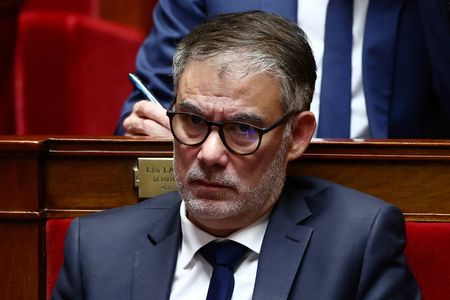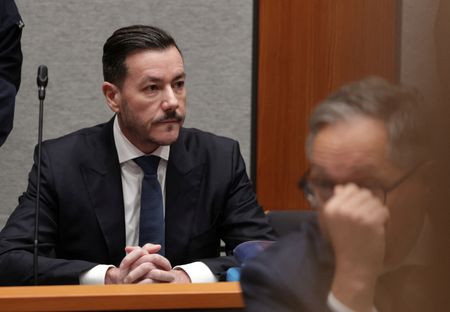By Alessandro Parodi
PARIS (Reuters) -After winning a major concession on pension reform from Prime Minister Sebastien Lecornu, France’s Socialists on Wednesday set their sights on including a tax on billionaires in the 2026 budget as talks over its passage began in parliament.
Lecornu told lawmakers on Wednesday he would propose in November an amendment to the social security financing law in order to suspend a landmark pension reform until after the 2027 election, sacrificing one of President Emmanuel Macron’s legacy achievements to ensure the survival of his minority government.
Lecornu was threatened by two no-confidence motions filed by hard-left and far-right parties, but his pension reform concession ensured the Socialists would not back the measures.
Lecornu remains in office for now but his shaky government could still trip at any moment over his proposed over 30 billion euros ($34.8 billion) in tax hikes and savings in next year’s budget.
UPHILL STRUGGLE TO PASS THE BUDGET
“Passing the budget will be harder than surviving a confidence vote,” Rabobank macro strategist Stefan Koopman said in a note, adding that further concessions would fail to resolve France’s deficit issues.
Socialist leader Olivier Faure said his party would now fight to introduce its flagship Zucman wealth tax, aiming to raise revenue with higher taxes on France’s richest individuals.
“In the forthcoming debate, we on the left will be working together to defend the Zucman tax and public services and to protect the poorest,” Faure wrote in a post on X.
The tax, named after an idea put forward by French economist Gabriel Zucman, entails a 2% levy on wealth above 100 million euros, affecting about 0.01% of taxpayers.
Lecornu has publicly opposed the tax, but in his address to parliament on Tuesday he said he would ask for an exceptional levy on large fortunes.
CONCEPTUAL CLASHES
The budget, which aims to reduce the deficit to 4.7% of GDP from this year’s 5.4%, hinges on a more than 30 billion-euro squeeze, including cuts to corporate tax breaks, tighter rules on social welfare contributions, and new levies.
“If we want to halt the rise in public debt in France, we need to be below 3% by 2029,” Finance Minister Roland Lescure told RTL Radio on Wednesday. “We are open to any negotiations which will lead to the final figure.”
Parties largely agree on the need to curb debt, but have been divided over how that should be achieved.
Political analyst Stewart Chau said that while the pension reform freeze would reopen the debate around the budget, it is not seen as a top priority by the French public.
“Retirement is not necessarily the first of worries, compared to purchasing power, health, access to education and inequality,” Chau told Reuters.
($1 = 0.8606 euros)
(Reporting by Sudip Kar-Gupta, Alessandro Parodi, Lucien Libert and Dominique Vidalon; Editing by Alison Williams)










